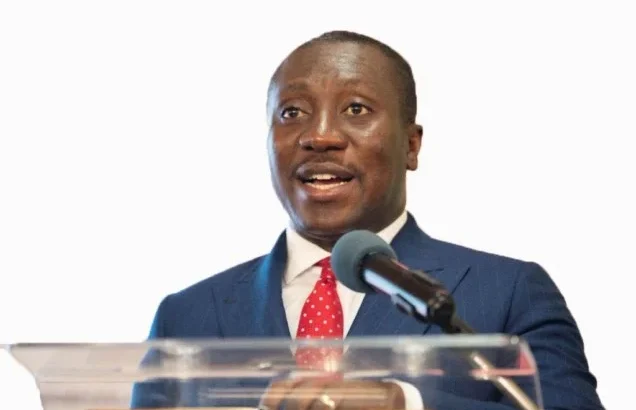The Majority Leader of Parliament, Alexander Afenyo-Markin, has filed an injunction application at the Supreme Court in response to a petition from Tamale South MP, Haruna Iddrisu, regarding the status of four Members of Parliament.
Iddrisu’s petition, submitted to the Speaker of Parliament, seeks to declare the seats of MPs from Suhum, Amenfi Central, and Agona West vacant due to their decision to contest the 2024 elections as independent candidates.
It also calls for the seat of Fomena MP Andrew Asiamah Amoako to be declared vacant, as he plans to run for re-election under the New Patriotic Party (NPP) banner, despite initially winning as an independent candidate.
At a Leaders’ Media Briefing, Afenyo-Markin stressed the need for a definitive legal ruling from the Supreme Court to address the constitutional implications of MPs switching political affiliations or running as independents. He argued that a court decision would clarify ongoing controversies surrounding these parliamentary seats.
This case invokes Article 97(1)(g) of Ghana’s 1992 Constitution, which outlines the conditions under which an MP can lose their seat, particularly if they leave the party that elected them or switch from being independent to joining a political party.
The potential implications of this case are significant. If the MPs are deemed to have vacated their seats, the NPP could lose its narrow majority in Parliament, potentially disrupting government operations in the lead-up to the December 2024 elections.
Afenyo-Markin’s affidavit highlights the precarious balance within Parliament. He pointed out that Ghanaian law prohibits by-elections within three months of a general election.
Thus, if Article 97(1)(e) is strictly interpreted, the ruling party could see its numbers drop from 138 to 135, while the opposition remains at 137, effectively shifting majority status to the opposition for the final months of the parliamentary session.
In addition, Afenyo-Markin has sought an interlocutory injunction to prevent the Speaker of Parliament from making any decisions regarding the MPs’ status until the court has ruled.
He argues that premature action could cause “irreparable or irreversible damage” to the MPs by having their names removed from the roll of the 8th Parliament.
This legal maneuver highlights the complexities of Ghana’s political system and the challenges of interpreting constitutional provisions amid a shifting political landscape.
It also underscores the tension between individual political ambitions and party loyalty, a common theme in democracies worldwide.
The current situation parallels a similar crisis from November 2020, when then-Speaker of Parliament Prof. Mike Ocquaye declared the Fomena seat vacant. At that time, Amoako Asiamah, now at the center of this legal dispute, had opted to run as an independent after losing the NPP primary.
Ocquaye based his decision on Article 97(1)(g), arguing that Asiamah’s departure from the NPP mandated the vacancy of his seat.
This precedent bolsters the opposition’s current position, but Afenyo-Markin’s challenge aims to differentiate the present circumstances, asserting that the MPs’ choices to run as independents should not impact their current parliamentary status.
This nuanced interpretation could lead to a landmark ruling that redefines the application of Article 97(1)(g) in Ghana’s evolving political context.


